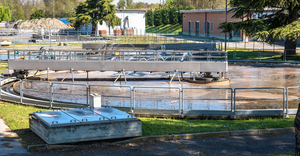This month, Polk County, Fla., chose FCC for its municipal solid waste (MSW) collection contract.
The Spanish environmental firm, Fomento de Construcciones y Contratas (FCC Group), through its US subsidiary FCC Environmental Services (FCC), is growing its presence in the U.S. as it adds more municipal waste contracts to its lineup.
This month, Polk County, Fla., chose FCC for its municipal solid waste (MSW) collection contract. The maximum term of the contract is 10 years with total revenues reaching a possible $102 million, the company said.
This is a large contract for the company, as Polk County is located in Central Florida, between Orlando and Tampa, and has a population of approximately 650,000. It shares a border with Orange County where FCC also holds a 10-year MSW collection contract, which it was awarded last year.
The new contract for Polk County divided the area into two zones (East and West). Under the terms of the contract FCC will collect refuse, recyclable material, bulk waste and yard waste from all the households located within the Western Zone limits. This is the larger of the areas in terms of population, and includes approximately 75,000 households and 375,000 inhabitants. The Eastern Zone was awarded to Florida-based Advanced Disposal Services.
FCC Group has over 100 years of experience in environmental services. It currently serves more than 53 million people in 13 countries, with a network of more than 120 recycling facilities and 10 existing waste to energy projects with a capacity over 2.6 million tons and 300 MW power output.
Relatively new to the U.S., FCC has been winning municipal solid waste contracts since being awarded its first in September 2015, FCC gained a MSW contract for Orange County, Fla.–the first such contract given to a Spanish company in the United States, FCC said.
The company was awarded two of the five Orange County, Fla., solid waste zones, the maximum a hauler can hold. In January 2016, FCC began servicing the $100 million solid waste contract—one of the largest of its kind in State of Florida—for a period of 10 years. FCC’s two solid waste zones have a total population of 400,000 residents who annually produce 100,000 tons of garbage, which is generated in its 83,000 dwellings.
Orange County is the fifth most populous county in Florida, with 1.2 million inhabitants. The entire metropolitan area of Orlando sits within Orange County, including its famous theme parks with more than 65 million tourists per year.
The company previously had secured a contract for biosolids management in Houston.
In November 2015, FCC won the recycling contract for the city of Dallas, which included building and operating a recycling plant in the city, which the Spanish environmental firm said could be worth $300 million during the unit’s lifetime.
The 15 year single-stream recycling contract, has the potential to be extended another 10 years.
The company has built an automatic sorting plant with the latest sorting and classification techniques, including artificial vision, and optical and gravimetric sorting machines. At the time, FCC called the move “strategically significant” for the firm, as the Dallas-Fort Worth region is the fourth largest metropolitan area in the United States. Six companies vied for the contract from Dallas’ Sanitation Services Department.
In addition to the Dallas contract, in November, the company also won a five-year service contract for the treatment and marketing of all the recyclables of approximately 24,000 residents of the City of University Park, Texas. FCC will process approximately 3,200 tons per year of the city’s recyclables at the new state-of-the-art facility starting January 2, 2017. According to an FCC news release, the contract is open to a possible yearly extension for a maximum of five additional years.
FCC has operated for more than 100 years and operates more than 50 similar plants in several countries across the world.
Mexican businessman Carlos Slim became FCC’s largest shareholder at 25.6 percent at the end of 2014. Bill Gates also holds a 5.7-percent stake in the group.
As for Polk County, FCC is splitting the contracts with Advanced Disposal. The county awarded the company the contract for the Eastern Zone which includes approximately 65,000 dwellings.
“It was by far one of the most thorough bids—as submitted by Polk County officials—that we’ve seen all year long,” says Advanced Disposal’s Corporate Marketing Communications Manager, Philip A. Alia. “Especially the evaluation process that they went through.”
The county had requirements for the number of contracts the company must have and the number of residents serviced. They also required 10 to 20 customer service surveys of recent or current customers of contracts with a minimum of 10,000 homes.
Alia says, Polk County’s evaluation also was very comprehensive in order to ensure that residents were getting a great provider with a great service.
About the Author(s)
You May Also Like


